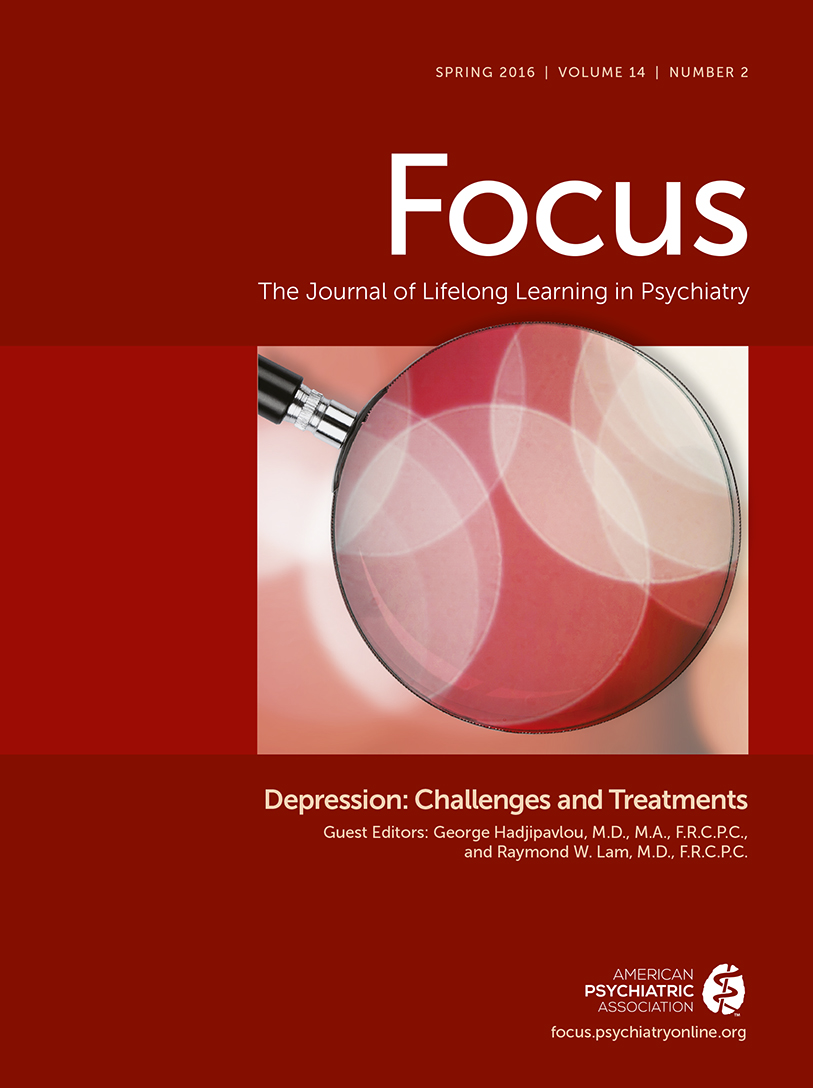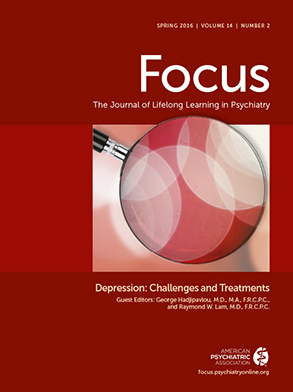Despite considerable advances in psychiatry’s understanding of major depressive disorder and its treatment, we continue to confront the humbling problem that only one-third of our patients achieve full symptom remission with initial treatment and that most go on to experience recurrence. Indeed, according to the World Health Organization, depression is now the leading cause of disability worldwide. This issue of Focus brings together topics that address various clinical dilemmas and challenges faced routinely by clinicians as they navigate the treatment course with patients who have major depressive disorder. An overarching theme across articles is that, in order to optimize clinical practice, close attention to available evidence from clinical trials is needed.
In his careful review of the research on combining antidepressants with psychotherapy, Dunlop guides clinicians in addressing two of the most important questions regarding combination treatment: Who is most likely to benefit, and when is the best time to start it? Hollon and Williams review outcomes for a growing list of available psychotherapies for depression, many of which have been tested across a range of intensities and modes of delivery. They offer pragmatic considerations for gauging the appropriate intensity of psychotherapies, including their availability, cost, and added value.
Thase provides an overview of strategies to overcome treatment-resistant depression, focusing on the current role of second-generation antipsychotics, which have become widely used for this purpose in North America. He compares the efficacy of second-generation antipsychotics with that of older approaches and offers practical recommendations for prescribing psychiatrists facing the following challenging questions: For how long should a second-generation antipsychotic be continued when effective, and is its continuation cost-effective when the risk of long-term harm is taken into consideration?
Although diabetes is recognized as a potential long-term complication of maintenance treatment with second-generation antipsychotics, as discussed by Gregory and colleagues, the bidirectional relationship between diabetes and depression is far more complex, encompassing both shared biology and contributing social factors, with important implications for the diagnosis and treatment of both conditions. The synergistic effects of diabetes and depression are evident in the neurocognitive decline frequently observed with these patients.
Cognitive dysfunction is also increasingly recognized as an important clinical dimension that impairs psychosocial functioning among patients with unipolar depression. The article by Chakrabarty and colleagues reviews clinical strategies for assessing and treating cognitive dysfunction in major depressive disorder.
The study of major depressive disorder has come a long way, but an even longer journey remains ahead, with many questions and challenges left to tackle. The authors featured in this issue of Focus cast light on how some of these questions and challenges can be addressed in innovative and comprehensive ways. Their work helps put us in a better position to clarify appropriate levels of care for patients with major depressive disorder and thus moves us closer to reducing the impairment and disability that intrude on the lives of our patients.

